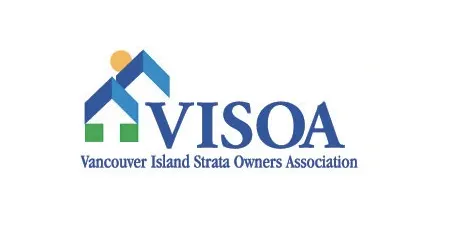
If I'm making changes to my unit, and it doesn't have any effect on the rest of the building, then I don't need to get any special approval. I just have to make sure to hire licensed professionals who will do the work well.
So you’re thinking about installing some new hardwood floors and taking down the wall between your kitchen and living room. In a strata, you might have to get permission from the strata council to make changes. We walk you through the process, with the example of an owner who wants to renovate their condo.
What you should know
You’ll probably find a section in your strata bylaws about alterations to your unit, which describes when permission from the strata council is required. Typically, anything that may end up changing common property will require council approval. For example: anything that impacts windows or sprinklers. But it could go further — many bylaws include “fixtures” as something that can’t be changed without permission. These would include wall coverings, electrical, and plumbing.
There might be more detailed requirements, like:
rules about the type of flooring you can use
insurance requirements
sound insulation requirements
times of day you can’t do renovations
Some stratas may ask for you to sign a liability waiver. Read these documents carefully before signing them, as it may shift any blame onto you if something goes wrong during your project. Know the goal posts.
How far does work have to go to be considered an “alteration” that requires strata approval? There have been many cases in BC that turn on this very question. The courts provide guidance on how “material” a change to your unit has to be before strata permission is required. The following examples come from real cases. But keep in mind, the rules aren’t hard-and-fast.
If it doesn’t truly change the property, then it isn’t an alteration. One example is installing a hot tub on your patio. A court ruled that this is more of a placement than an alteration.
If you’re changing something like-for-like, then it isn’t an alteration. An example would be replacing a window or door with (a newer model of) the exact same window or door.
Planting several trees or bushes at the edge of your yard would be an alteration, given that’s more of an improvement on a large scale.
Drilling an additional opening through which an upgraded plumbing valve is installed under the sink is an alteration, because it’s a clear change (albeit minor).
Installing an air conditioning unit on your patio is typically an alteration, since it requires you to drill holes in an exterior wall or window.
Each situation is unique, and so produces unique results. If you feel like your project is on the line, it might be worthwhile to seek professional advice, or the advice of somebody in the building that you can trust, before going to the strata council for approval.
“I hired a tradesperson to redo the tiling in our bathroom. The scope expanded — suddenly we were installing heated floors and getting a new tub. Our plumber recommended we upgrade our pipes as well. Then one day the strata president knocked on my door, asking me about my renovations. Before I started, I didn’t think I needed permission. But as the project grew (and grew), it seemed I was making changes to the building’s piping system. The strata council was now suddenly involved, and it took an extra two months to finish the project."
– Reed, Coquitlam, BC

That bylaw we discussed above probably also mentions that the strata can’t “unreasonably withhold their approval.” Situations like urgent repairs or upgrades are typically OK’ed without any fuss. But stratas can deny changes that may cause the uniformity of a building to be compromised. (Think: a big air conditioner on a patio, or different-coloured patio doors than the rest of the units.)
The strata also can’t wait too long to approve or deny your request. For more on this, see below on the steps to get your project approved.
Call your insurance broker to see if you need to make changes to your coverage during the renovation. It’s not uncommon for your rates to go up given the increased risk of damage to your unit or other units when you’re replumbing or rewiring, or you’re making structural changes.
How to get your special project approved
Try to get access to the building’s blueprints (in Vancouver, you might be able to do this at city hall). Then you can ask a contractor or architect about the scope of what you’re trying to do. They’ll be another helpful voice to advise on the following:
Are there any sprinklers or other common property between the walls you want to take down?
Will you need permits from your municipality?
Are you making an alteration to your unit that requires permission?
Professional advice can help make your application to the strata smoother. It will also help to set expectations for how long your reno may take — getting municipal permits, for example, can take many months. They’ll also be able to suggest alternatives if your main plan isn’t approved (or is too expensive!). Consider asking for more than what you need (within reason), so your compromise gets you closer to what you want.
This is the most delicate part of the process. If you’ve determined you need permission, ask the strata council president or building manager about the process. Don’t offer additional information that you aren’t asked for. Have alternatives ready if the strata rejects your proposal.
Give the council time to respond. If they don’t answer within a reasonable timeframe (it might take longer if you’re asking to do something big), write them to ask for a formal hearing, which must take place within four weeks. Then, after the hearing, they have to make their decision within one week. If they're still stonewalling, you can apply to the Civil Resolution Tribunal, an online venue to resolve strata disputes.
If the strata council rejects your proposal, you can appeal the decision to the CRT, especially if it relates to the interpretation of a rule or bylaw.
Some owners may try to slip a small reno through without permission, or use unlicensed workers. But realize that a neighbour might complain to the strata, who could bring your project to a grinding halt. Worse yet, shoddy work could impact other units (water damage is a major source of strata insurance claims), and you might be on the hook for a hefty deductible (more on that in our page on dealing with your strata).
If it’s going to be a noisy few months, tell the people next to you (and below and above you) your plans. Acknowledge the noise. Leave a small gift on their doorstep before you break ground. A little gesture could go a long way to maintaining civility both during and after your project.
Keep your crew on the straight and narrow: strata bylaws often prohibit work on certain days (like Sundays or statutory holidays) and before and after certain hours.
Who can help

Condominium Home Owners Association of BC (CHOA)
A non-profit that promotes the interests of strata property owners.

Vancouver Island Strata Owners Association
Provides education, resources and support to owners and councils on the Island.

